[vimeo width=”500″ height=”375″]https://vimeo.com/124025592[/vimeo]
[vimeo width=”500″ height=”375″]https://vimeo.com/124747951[/vimeo]
.
Michael V. Smith’s short film triptych “Wolf Lake” brings three poets together with three colliding narratives: two men driving on a country road, the unconscious or dead woman who they come upon, and the man who abducted her who is lifting her from the trunk of a car. The first two films focus on Elizabeth Bachinsky and Matt Radar‘s two poems, both also titled “Wolf Lake.” The films use impressionistic footage to simulate memory and visual desire to disturbing, haunting, and beautiful ends. Michael V. Smith is a writer, award-winning filmmaker, comic, and drag queen. His most recent book is My Body Is Yours, a harrowing, adrenalin-driven flight into vulnerability and revelation. Continuing our conversation about film from last month when Smith interviewed me about my film “zack & luc,” here we explore his work-in-progress and how he sees this narrative, filmic, collaborative collision playing out.
RWG: How did the collaboration for the first film of “Wolf Lake” come about?
MVS: I signed up for a free course on making Super 8 films. My friend Juli Saragosa was running a workshop. And Liz Bachinsky and I got to talking about wanting to make a film, and I said, “Let’s do it for this.” And then we picked her poem “Wolf Lake,” because I loved it, and just started brainstorming what that might look like. What kind of images worked best, or what approach. And together we had one of those aha moments, where we realized the film footage would be from the perspective of the stalker. Everything clicked after that, like tumblers opening up the project.
RWG: The super 8 format for the first film, the “Bachinsky Version,” and the way you shoot lots of long shots is very voyeuristic, pervy. This seems in conflict with the very personal voice of the poem. Are you intending to create conflict between the persona of the poem and the man?
MVS: I always call it “stalker footage.” The idea is that what we see in the film is the footage captured by the assailant, so we’re indirectly voyeurs, as well. If I remember this correctly, one of the reasons Liz wrote her poem in response to Matt Rader’s original version of Wolf Lake—itself a great poem—was because she took issue with how the girl in the poem is an object, a nameless body to serve the male narrator. She loved his poem and wanted to give a voice to that girl. So part of the strategy in making the film was to play into that conflict between the girl as object and subject. We get her story, but she is the object of someone else’s gaze—the filmmaker, you might say, recording in the subject position of the imagined assailant. There’s a quiet critique in this approach, I hope, that draws our attention to the fact that most women on film are objects. Their clothes are tighter, we show close ups of their eyes more. Their hair is flawless, even after a windstorm, right? Those goddamn high heel shoes in Jurassic World. So unreal. That’s the protagonist not being allowed to be a fully-realized subject. Nearly every actress is made a Barbie. And we’re the creeps who don’t care, or notice, or expect better. So I hope a bit of that critique plays out here, putting the audience in the perspective of the creeper. What exactly are we looking at? Why are we looking? What does it say about me that I’m watching? How am I complicit?
RWG: I am fascinated with how you double the voices, the narrative reading and the whispering voice which begins before the narrative but then echoes on a delay. It’s haunting and it feels like it troubles or bridges the words and the images. What inspired you to double the voices?
MVS: I’m glad you found it compelling. I love this affectation too. The choice to double was just practical, at first, but then when something works, it’s because it does other things as well. It complicates or compounds. The story is, I’d asked Liz to read her poem a few different ways, to try things out, you know? It’s hard to imagine in advance what all the pieces put together will do—so I know I want the voiceover and I know I have these images captured, but you really do remake the film again in editing. There are so many variables when shooting, that by the time you get to editing you have to work with the materials at hand. So I said, “Okay, now read it more slowly. Now can you whisper? Can you read it without much emotion, just as fact?”
When it came time to marry the rough cut and the voiceover, neither the whisper nor the flat delivery worked. They just felt hollow, somehow. Like, they were missing something. They were too literal, maybe? And so I did that thing you do, and played with it. I laid both tracks down, and the clouds parted. It worked for me. With little need to alter their pacing. Suddenly, there was some mystery with the multiple voices—like, which tone do we believe?
My sense of how it works—or why it works for me, I can’t really speak for anyone else—is tied to a few ideas. One is that we don’t believe women enough—like we don’t believe blacks, we don’t believe queers—so multiple voices are necessary. We have to tell our story over and again and still people doubt the truth of our experiences. They doubt how we describe our assaults. So here are two versions of an assault that are identical. There are no discrepancies in the different tellings, no room for doubt. They do not contradict each other.
Another way the doubling is effective has to do with how I don’t think we know whether that girl survives her attack or not. So the two voices work like the voice of the dead girl and the voice of the one who survived. For me, poetry is always multiple. It functions as an ‘and’. It is this and this. She dies and survives both. Here are her two voices, each as true as the other. In many ways, it’s an embodiment of an emotional moment, right? We don’t have a singular emotion in any one crisis, we have multiple feelings. We are multiple. And so she gets to have at least two of her emotional truths present in the one telling—the candid one, and the subtext, maybe, compelling her to whisper. Ands.
RWG: The voices run at different speeds so that by the end when the narrative finishes, the whispering continues, haunts. Something about this felt like it echoes how memory or trauma work.
MVS: Yes. That too. The delay speaks to the lingering of a moment, to the memories that haunt. Trauma as a resounding echo through the telling. The echo begins before the plain spoken delivery starts—the trauma and fear are present before the regular voice begins—and they persist even after the telling. Exactly.
RWG: How did the idea for the second version, the “Rader Version,” come about, or have you always seen this as a triptych of films?
MVS: It just seemed obvious to me that I’d make the other films to complete the trio of poems. I loved Matt’s poem first—he wrote his first—and we just ended up making Liz’s poem into a film from circumstance. So it seemed necessary, even, to make his. My poem is the third, told in the voice of the assailant. I know what I’m shooting for the third poem—which I don’t really want to reveal—I just need to find the time to make it.
RWG: You used two different shooting formats for the two films, super 8 and an old digital camera. Why the shift?
MVS: For two simple reasons. I like shooting on different cameras to see what they’ll look like. I like to try new things. And I thought the formats suited the characters, to some degree. Like, they’re two different characters, two different perspectives behind the cameras, so of course they’d have different cameras.
RWG: In “Wolf Lake,” the “Rader Version,” the footage seems closer than the “Bachinsky Version,” feels more home movie like, on the brink of being erotic. There’s this sort of homosocial space, intimate masculinity, that is then brought up against a violent face of masculinity. What are you exploring with that tension?
MVS: Matt’s poem really is a coming of age poem, in a way. They are innocent boys on the day they see a man toss a girl’s body over his shoulder. And then one of them reaches for his gun. What follows next, we can assume, is a horror. The narrator, I think, is nostalgic for that innocence. So at its most basic, I wanted to capture something very, very simple, something naïve, that spoke to that sense of nostalgia.
The long singular shot couldn’t be much more flat, or romantic, in the naïve sense of romantic, a world without irony, a world of rosy glasses. Much of Matt’s film is landscape, a world with few humans, so it’s maybe easier to be romantic. The contrast, then, comes from the imagery run alongside the content of the poem. That road they’re traveling down, it’s literal, and metaphorical, both. Around a bend in the road, a hell awaits. That simplicity, I would hope, creates a kind of tension of sophistication, a tension of maturity. If they seem homosocially intimate, great. Because those boys are about to be thrown into a tragedy, as featured players.
RWG: You’ve said there will be a third piece in this project, forming a triptych. What will it be about and how will it extend this project and how will it differ technically and aesthetically?
MVS: I don’t want to say what the third will be, not yet, but the time of that third film will take place after the incident. The aftermath. The third poem is a confession, of sorts.
I’m hoping when all three are complete I can do a gallery showing and have them all run at the same time, in loops. Because they’ll be slightly different lengths, the images will collide with each other in new triptychs. The sound would play through three sets of headphones in the centre of the room, each playing only one of the three voiceover poems, so you’d get a different story depending on which you picked up.
RWG: Running through these two films and in places in your other work seems to be a theme of the destructive, violent side of masculinity, present as a sort of vertigo. In relation to your memoir My Body is Yours I think you even refer to your own failures at masculinity. What is that vertigo and, for you, is there a counterpoint, an expression of gender or specifically masculinity that doesn’t end up at “Wolf Lake?”
MVS: Oh man. That question is the hardest, Rob. Okay, vertigo. Yes. I think that’s a succinct word for how I felt growing up—there was this masculine place I was meant to occupy, and I just couldn’t seem to find it. Every time I tried to be a ‘boy’, I just felt dizzy with failure. I couldn’t read the signals, I couldn’t manifest the signs. I was like an alien who couldn’t make his three arms fit in a straightjacket. It was disorienting.
I didn’t see much tenderness in masculinity. And if I did, it was often complicated with shame, because tenderness and affection were also part of sexuality and desire. If you’re raised a fag in a straight world, and you’re afraid of being a fag, then male affection of any kind is always complicated. I think I’m more nuanced and secure as an adult, for sure, but we see symptoms of this still in films everywhere. All those goddamn super hero movies with protagonists that only win by might—by brute force—rather than any cleverness or ethic. We don’t build heroes that win because they make moral choices. We build heroes that win because the hero wins. And the tools of their victory are the same tools as the evil they are battling. And everything is a competition, rather than a dance. So if my masculinity in films seems violent, and destructive, I think it’s because that’s the only way we can recognize masculinity. If it’s destructive, it’s masculine. And if it’s affectionate, well, chances are we read that as feminine, regardless of the gender.
RWG: In your novels, (Cumberland (2002), Progress (2011)) your memoir or non-fiction pieces, and in your various films, you seem to alternate between very direct autobiography and more indirect pieces like “Wolf Lake.” Why do you think you have both impulses in your work? What do the two forms of expression offer you?
MVS: In my novels, and films like “Wolf Lake,” which are more imagined, I’m interested in the fairy tale, I guess. The parable. I love the puzzle of making and inventing and discovering characters, as an exercise in negotiating structure and character. Characters and personalities drop out of our imaginations who are not us. That’s a thrill. That’s something magic, that is greater than myself. I love it, the experience of that discovery. And much of the thrill comes from trying to build the mechanics to embody the emotional or spiritual or psychological insights that come with the intimacies of that character and their life they present to me.
I love autobiographical work, like memoir, and confessional poems, for how that personal story—someone’s version of truth—is a fiercely singular perspective. I love the voice in autobiography. I love building a character that is close to myself—‘cuz no character is the self, right?—drawing a reader in close so I can share my private vulnerabilities. That shit is magic. We learn by experience, but some of that is also the experience of reading someone else’s life. They’re gifts we lived ourselves.
Michael V. Smith is a writer, filmmaker, comic, drag queen, and an associate professor at UBC Okanagan. His most recent book is My Body Is Yours, a memoir detailing his emancipation from masculinity.
.
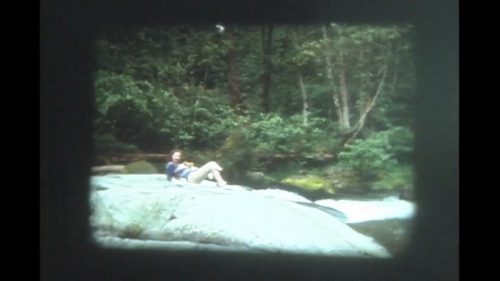
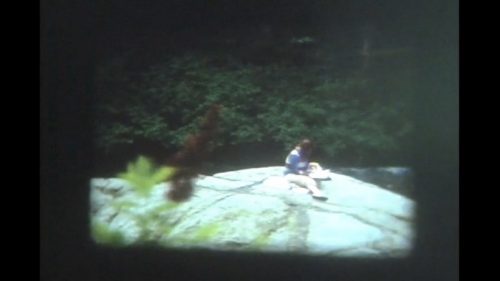
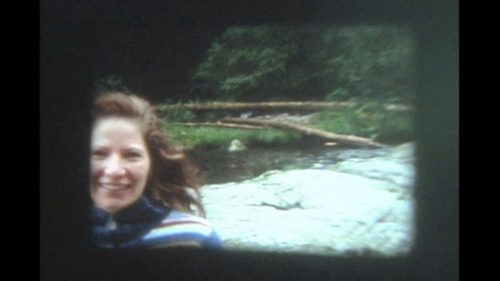
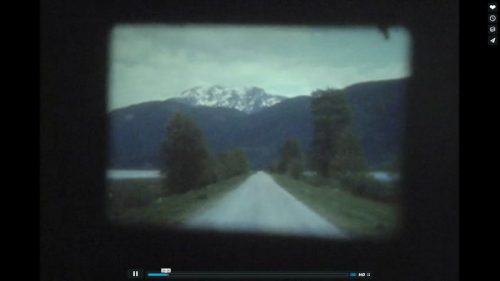
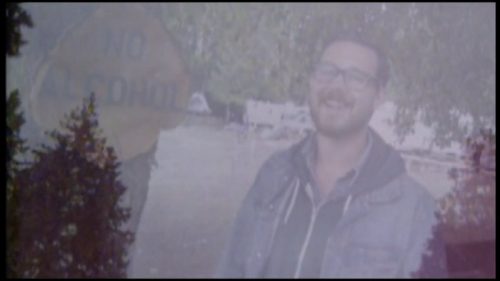
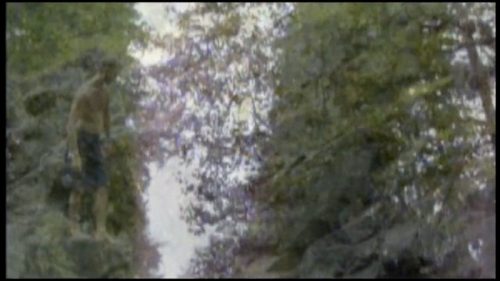
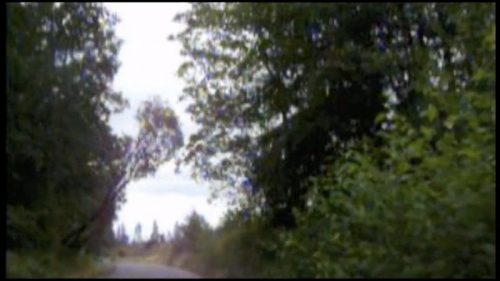
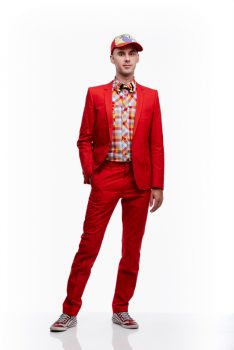
fascinating stuff